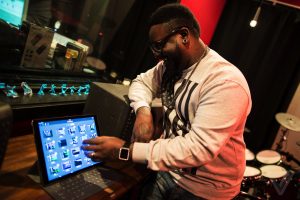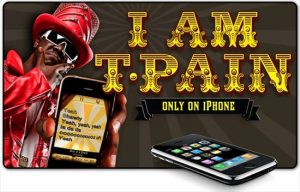Beyond the Original Purpose of Auto-tune
Many critics of auto-tune, and in turn T-Pain due to his extensive and recognizable use of the technology, argue tuning music removes creative and vital steps of the music making process from these songs featuring the effect. The tool creates vocals and songs that are “deprived of typical human characteristics.”[1] Natural occurrences are removed from the musical process, reducing its apparent authenticity and human side.
Jim Anderson, a professor of recorded music at NYU, and president of the Audio Engineering Society explains, “there’s no shame in fixing a note or two…But we’ve gone far beyond that.”[2] Many critics argue that fixing too many notes removes a human aspect from the music. Some even recall times when singers would keep their auto tune use a secret, for fear of negative backlash or the stigma of fixing their voices.
Question of Authenticity
Much of the hip-hop and rap genre can be critiqued for inauthenticity- due to the nature of the genres to involve sampling form prior songs and pieces along with manipulation of beats and lyrics to create something new. “From the early 1980s through the “golden age” of hip-hop (which ended around 1993), hip-hop beats were created from samples of pre- existing recordings.”[3] Because of this, hip-hop artists are predisposed to accusations of inauthenticity. Therefore, the use of technology and computers to create a new sound is not far off from previous complaints of hip-hop and rap being in authentic.
Interestingly enough, some critics relate musicians using auto-tune to the likes of plastic surgery. They relate the temptation to fix more than needed when the opportunity arises, almost reducing the “authenticity” of the piece.[4]
For this reason, since auto-tune fixes the natural occurrences when one sings- it works as “a cheat code for artists.”[5] Musicians may lose the prestige surrounding them if their sounds are manipulated and aided extensively by computers and applications.
There has become little divide between the technology and auto-tune and the actual human abilities and talent. The auto-tune features and the human input are “so deeply mingled that it is impossible to say where one ends and the other begins, making it very difficult at times to distinguish between human and machine.”[6] Therefore, this opens up debate about the authenticity of music created with extensive auto-tune use.


